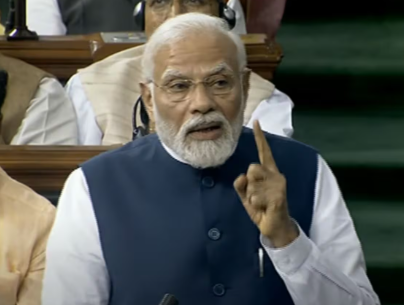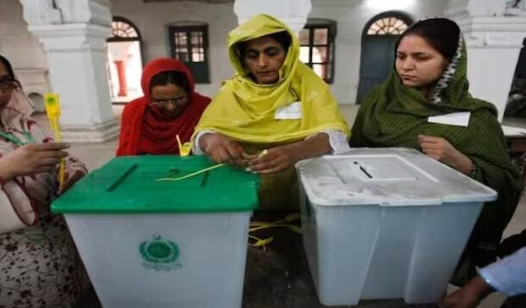
Pakistan General Elections 2024 on February 8th: Candidates, Voting Process | A Deep Dive
Pakistan General Elections 2024: Candidates Face Uphill Battle in Cutthroat Voting Process
Pakistan’s General Elections 2024, slated for February 8th, are poised to shape the nation’s political landscape for the next five years. As a parliamentary democracy, the elections will determine the composition of the federal legislature, including the National Assembly, and four state legislatures. A staggering total of 44 political parties, with 5,121 candidates for the federal legislature and 12,695 candidates for state legislatures, are vying for positions. With an eligible voting population of 128 million out of a total population of 241 million, the electoral process holds significant weight.
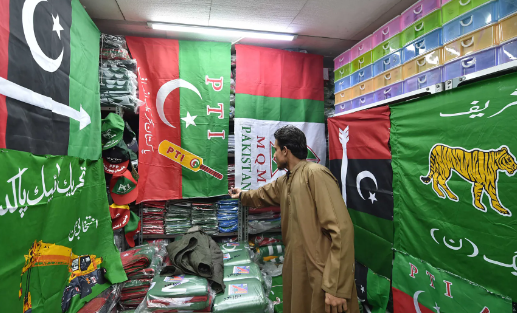
The preceding year has been marked by pivotal events setting the stage for these elections. The dissolution of the National Assembly by the president on August 9, 2023, initiated the electoral preparations. Notably, the return of former Prime Minister Nawaz Sharif in October 2023 after four years of self-imposed exile abroad added complexity to the political landscape, particularly with his convictions overturned upon appeal. Subsequent postponements pushed the elections from November to January and eventually to February 8th.
On the operational front, the electoral process unfolds with anticipation. While preliminary results are expected on Thursday evening, official results will be disclosed on Friday. The National Assembly, comprising 336 seats, sees 266 members elected through direct voting, with the remaining 70 seats reserved. These reserved seats are allocated based on party strength in the Assembly, with 60 for women and 10 for non-Muslims.
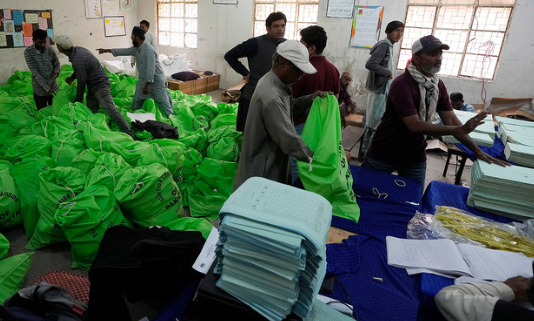
Following the election of National Assembly members, the selection of the Prime Minister ensues, contingent upon securing a majority in the house—requiring the support of 169 members. Similar procedures are mirrored at the provincial level for the selection of chief ministers and the formation of provincial governments, including the possibility of coalitions in the absence of a clear majority.
The electoral race features three major parties—Pakistan Muslim League-Nawaz (PML-N), Pakistan People’s Party (PPP), and Pakistan Tehreek-e-Insaf (PTI). PML-N emerges as a frontrunner with both Nawaz Sharif and Shehbaz Sharif leading the party. PPP, allied with PML-N, is led by Bilawal Bhutto-Zardari. PTI, led by Imran Khan, faces setbacks as Khan is ineligible due to criminal convictions, raising concerns about fair campaigning.
Despite military influence behind the scenes, Pakistan grapples with pressing issues such as economic instability, diplomatic relations with Afghanistan, infrastructure rehabilitation, power shortages, and insurgent challenges.
As the elections draw near, public sentiment reflects disillusionment stemming from political discord and stagnant living standards. Nawaz Sharif’s return and swift exoneration contrast sharply with Imran Khan’s legal hurdles, shaping anticipations for the outcome. International observers and rights groups scrutinize the electoral process for transparency and fairness amidst concerns over voter turnout and credibility, particularly in the wake of anti-establishment sentiments following Khan’s removal in 2022.
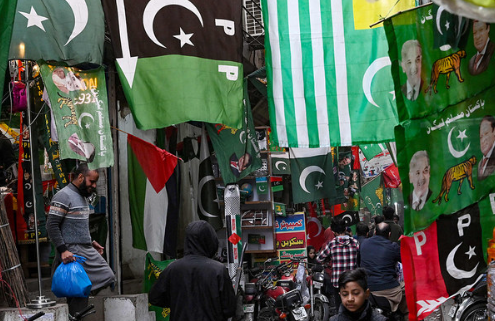
In essence, Pakistan’s General Elections 2024 stand as a critical juncture in the nation’s democratic journey, with implications reaching far beyond political transitions, impacting the lives of millions and shaping the nation’s trajectory for years to come.
Amidst the anticipation surrounding Pakistan’s General Elections 2024, the outcome holds immense significance for the nation’s future trajectory. Beyond mere political transitions, the results will reverberate across economic, social, and geopolitical spheres, shaping the lives of millions of Pakistanis and influencing regional dynamics.
Economic Stability: Pakistan grapples with a fragile economy plagued by inflation, unemployment, and fiscal deficits. The incoming government faces the daunting task of implementing structural reforms to stimulate growth, attract investments, and create employment opportunities. Addressing the root causes of economic instability is imperative to alleviate poverty and foster sustainable development.
Diplomatic Relations: With neighboring Afghanistan in a state of flux following the Taliban’s resurgence, Pakistan’s foreign policy assumes heightened importance. The new government must navigate complex geopolitical dynamics to safeguard national interests, promote regional stability, and enhance cooperation with international partners. Strengthening diplomatic ties with neighboring countries while balancing global alliances is crucial for Pakistan’s security and prosperity.
For the latest updates-click here.


